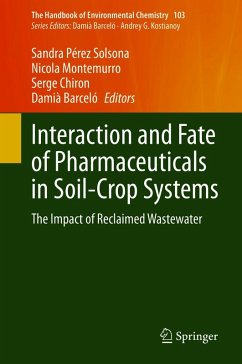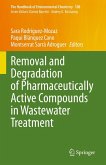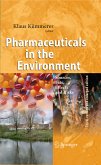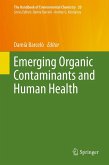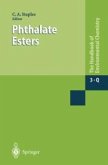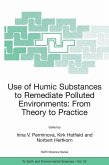This book provides a comprehensive overview of the current knowledge on the fate and interaction of pharmaceuticals in soil-crop systems. It addresses the principles of their transport, uptake and metabolism and reviews methodologies for their analytical determination. It also discusses ecotoxicological effects arising from their presence and highlights bioremediation approaches for their removal.
The use of treated wastewater to irrigate crops is becoming more widespread in regions where freshwater is limited. This practice conserves freshwater resources and contributes to nutrient recycling. However, concerns remain regarding the safety of irrigation with treated wastewater since it contains residues of pharmaceuticals that have survived treatment, which means that soil and fauna are potentially exposed to these xenobiotics. Various pathways govern the fate of pharmaceuticals in crop-soil systems, including soil degradation; formation of non-extractable residues; uptake by soil-dwelling organisms (e.g. earthworms); and uptake, transport, and metabolism in agricultural crops. Investigations into these aspects have only recently been initiated, and there is still a long way to go before a meaningful assessment of the impact of wastewater has been completed.
Dieser Download kann aus rechtlichen Gründen nur mit Rechnungsadresse in A, B, BG, CY, CZ, D, DK, EW, E, FIN, F, GR, HR, H, IRL, I, LT, L, LR, M, NL, PL, P, R, S, SLO, SK ausgeliefert werden.

